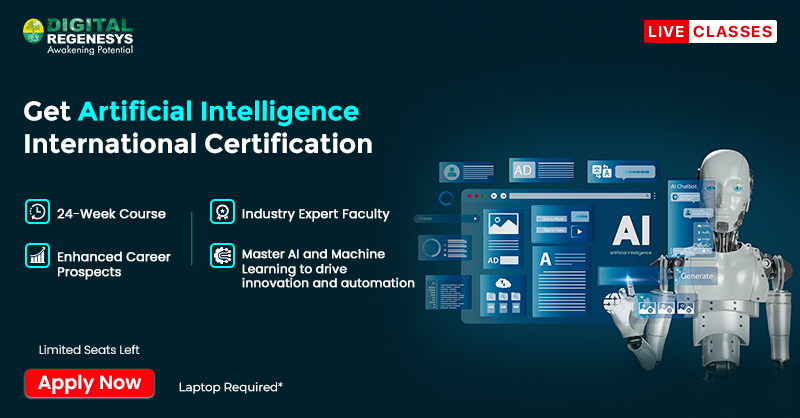AI in Healthcare: Best Examples That Are Changing Patient Care

Artificial intelligence is becoming one of the most important tools in healthcare. Doctors, researchers, and hospitals are using it to improve the quality of care, make faster decisions, and reduce the chances of errors. From diagnosing diseases earlier to improving patient monitoring, AI is proving to be a powerful aid in the medical world. Patients are already experiencing the benefits of AI-supported systems, and the healthcare sector is adapting rapidly to this change.
When we talk about best examples of AI in Healthcare, we are looking at real-world uses that are already making a difference in treatment, research, and patient care. These examples show how artificial intelligence is not just a future possibility but a present-day reality in hospitals, laboratories, and clinics. In this article, we will explore some of the best ways AI is shaping healthcare.
AI in Medical Imaging and Diagnostics
Medical imaging is one of the areas where Artificial Intelligence has made the most progress. Accurate and early diagnosis often decides the success of treatment, especially in serious conditions like cancer and heart disease. Traditional imaging methods rely heavily on the experience of radiologists, but AI now supports them by analysing scans with greater speed and precision. This partnership helps reduce errors and increases the chances of early intervention, which can save lives.
Here are some of the most notable uses of AI in healthcare,including imaging and diagnostics:
- Early cancer detection improves survival rates when AI identifies patterns in imaging that humans might miss.
- AI scans reduce errors in X-rays and MRIs by cross-checking millions of records and past results to provide more reliable outcomes.
- Pattern recognition supports radiologists in decision-making by suggesting possible conditions that may otherwise be overlooked.
Check out What to Learn in Artificial Intelligence on our blog for practical insights on AI skills development.

AI in Drug Discovery and Development
Drug discovery is a lengthy and costly process. It can take years for a new medicine to reach the market, and many fail during clinical trials. AI is changing this by speeding up the process of identifying potential compounds and predicting their effectiveness. This makes it possible to reduce costs and deliver life-saving treatments to patients more quickly.
The following examples show how AI is supporting drug discovery and development:
- AI predicts potential drug compounds quickly by simulating how different molecules will behave in the human body.
- Clinical trial simulations save both time and cost by identifying which patient groups are most suitable for new medicines.
- AI helps reduce risks of failed medications by screening out ineffective or harmful compounds before they enter human testing.
Check out What’s Inside an Artificial Intelligence Course Syllabus?
AI in Personalised Treatment
Every patient is unique, and traditional medicine often struggles to adapt treatments to individual needs. AI solves this problem by analysing patient history, lifestyle, and even genetic data to create personalised treatment plans. This ensures more effective results and reduces the chance of side effects. Personalised medicine powered by AI is becoming a crucial part of modern healthcare.
These are some of the ways AI supports personalised treatment:
- AI analyses genetic data for customised therapies, ensuring patients receive treatment specific to their condition.
- Patient-specific treatment reduces side effects by selecting medications and dosages tailored to the individual.
- Continuous learning models improve with new patient data, adapting treatments over time to remain effective.
Read Why Do We Need Artificial Intelligence? on our blog to explore study paths that also apply in the Indian context.
AI in Robotic Surgeries
Surgery requires precision, and even the smallest error can have serious consequences. AI-powered robotic systems are helping surgeons perform operations with greater accuracy and control. These technologies do not replace doctors but provide them with enhanced tools that reduce risks and improve patient recovery. Hospitals across the world are adopting robotic-assisted surgeries for complex procedures.
Here are some of the best examples of AI in healthcarein robotic surgeries:
- Robots improve accuracy during complex surgeries by assisting with fine movements that require steady precision.
- AI reduces human error in delicate procedures, giving surgeons more confidence in challenging cases.
- Data-driven insights help in faster recovery planning by using surgery data to suggest rehabilitation approaches.
Check our detailed post on Career Guide on How to Become an Artificial Intelligence Engineer.
AI in Patient Monitoring and Wearable Devices
Monitoring patients outside of hospitals has always been a challenge. Wearable devices powered by AI are now making it easier to track health in real-time. This is particularly useful for patients with chronic conditions like diabetes, heart disease, or hypertension. AI not only collects the data but also interprets it, alerting healthcare providers when something unusual happens.
Some of the best examples of AI in healthcarefor patient monitoring and wearable devices include:
- Wearables track heart rate and blood pressure continuously, helping doctors monitor progress remotely.
- AI detects anomalies in patient health trends, flagging early warning signs of possible medical emergencies.
- Alerts improve emergency response for critical patients by notifying medical teams instantly when vital signs become dangerous.
For more insights into related fields, check out What is Artificial Intelligence? Get Complete Details Here!
AI in Administrative and Operational Efficiency
Hospitals and clinics often face challenges in managing appointments, records, and patient communication. AI is helping reduce these pressures by automating many administrative tasks. This not only saves time but also allows healthcare workers to focus more on patient care. Improving hospital efficiency directly benefits patients by reducing waiting times and making systems smoother.
AI in healthcare in administrative and operational efficiency include:
- AI chatbots handle patient queries effectively, giving accurate responses without the need for human staff.
- Automated scheduling reduces waiting times by assigning appointments based on availability and urgency.
- Data-driven management improves hospital resources by predicting demands such as bed availability or staff requirements.
For more insights into related fields, check out What’s Inside an Artificial Intelligence Course Syllabus?
Challenges and Ethical Considerations of AI in Healthcare
Despite its benefits, AI in healthcare also faces challenges. Ethical questions about privacy, transparency, and fairness continue to grow. Hospitals must ensure that sensitive patient data is protected and that AI systems are not biased in their decision-making processes. Smaller healthcare providers may also struggle with the high costs of integrating AI systems.
Here are some challenges linked to AI in healthcare:
- Data privacy concerns in patient records require strict security measures to avoid breaches.
- Risk of algorithm bias in predictions may affect the fairness of medical outcomes.
- The cost of AI integration for smaller hospitals remains a barrier to widespread adoption.
Conclusion
The examples discussed in this article show that AI in Healthcare are not just an idea but a real change already shaping the industry. From diagnostics and personalised treatments to robotic surgeries and patient monitoring, AI is enhancing both care quality and efficiency. Challenges remain, but with responsible use, AI will continue to improve the way healthcare is delivered worldwide.
At Digital Regenesys, we provide high-quality online learning experiences in areas like artificial intelligence, business, and technology. If you are interested in exploring artificial intelligence certification courses and related fields, visit our artificial intelligence course page to see how you can expand your knowledge and career options.
If you want to learn more about technology-driven industries and career opportunities, explore the homepage of Digital Regenesys.
Last Updated: 24 September 2025
